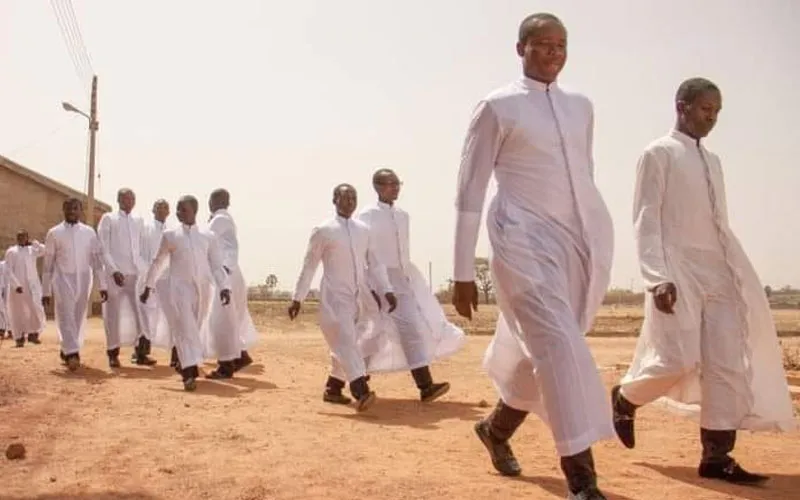“Saint John Paul II Major Seminary has two campuses. The old campus that has a chapel and the new one under construction where the Seminarians live,” the Priest who serves as the Administrator of St. Joseph's Cathedral of Mamfe Diocese told ACI Africa April 11.
Fr. Eboka continued, “On that fateful morning, the driver transported the first group of Seminarians for Holy Mass at the old campus of the seminary. When he returned to get the rest of the group, they were attacked by the separatist fighters and taken to an unknown destination.”
“Out of the 33 kidnapped that morning, two Seminarians were released while the rest remained in captivity,” he recounted, and added, “The rest of the 31 were only freed on Saturday, April 9 following negotiations by local chiefs in the area.”
Separatists have been operating in the English-speaking regions of Southwest and Northwest Cameroon since 2016 when the Anglophone region plunged into crisis after a protest by lawyers and teachers turned violent.
The armed separatists who claim independence for the so-called republic of Ambazonia have been responsible for abductions and attacks in the Anglophone regions.
Last year, the Vicar General of Mamfe Diocese was abducted by separatist fighters and later released after three days of captivity.
In the April 11 interview with ACI Africa, Fr. Eboka who had been abducted on 22 May 2021 and freed 31 May 2021 said the separatists requested for a 25 million FCFA (US$41,356.00) ransom from the Church, which he said was never paid.
“The Church has always partnered with local chiefs who the amba boys respect to negotiate the release of those kidnapped. In this case, they negotiated with the separatists for the release of the Seminarians and their driver,” he said.
Asked about the challenges posed by the Anglophone crisis in Mamfe Diocese, Fr. Eboka said, “From the look of things, it is like nothing is happening; places are calm but that is not the case.”
“This is because the boys are in their hideouts, which are in the hinterlands and we who are working in those areas our lives are on the edge,” he said.








